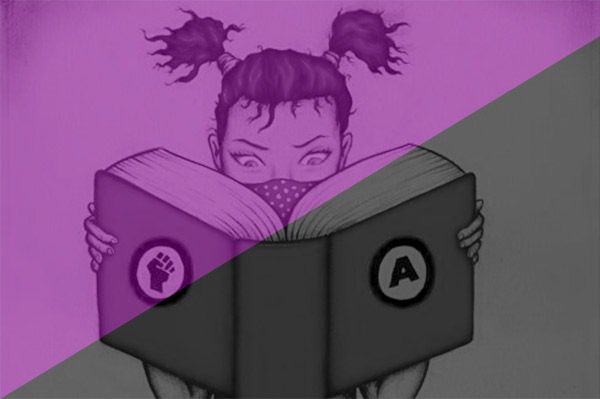Over 30 years of anarchist writing from Ireland listed under hundreds of topics
International
Drug Criminalisation and the Tragic PMMA Deaths it Causes
 Drug criminalisation claimed another tragic victim last night 17 May) with the death of 18 year old Ana Hick. From press reports it appears hers was yet another preventable death caused by taking toxic PMMA that is sometimes substituted for MDMA due to prohibition and ruthless gangster capitalism.
Drug criminalisation claimed another tragic victim last night 17 May) with the death of 18 year old Ana Hick. From press reports it appears hers was yet another preventable death caused by taking toxic PMMA that is sometimes substituted for MDMA due to prohibition and ruthless gangster capitalism.
The Rojava Revolution, Gender Liberation & Feudalism Video & Audio from DABF 2015
This session at the 2015 Dublin anarchist bookfair examined the reasons why gender liberation is central to the Rojava revolution in northern Syria and looks in particular at the importance of the struggle against tribal feudalism.
Brigadistas in Paradise - The Green Brigade and left wing football fan culture
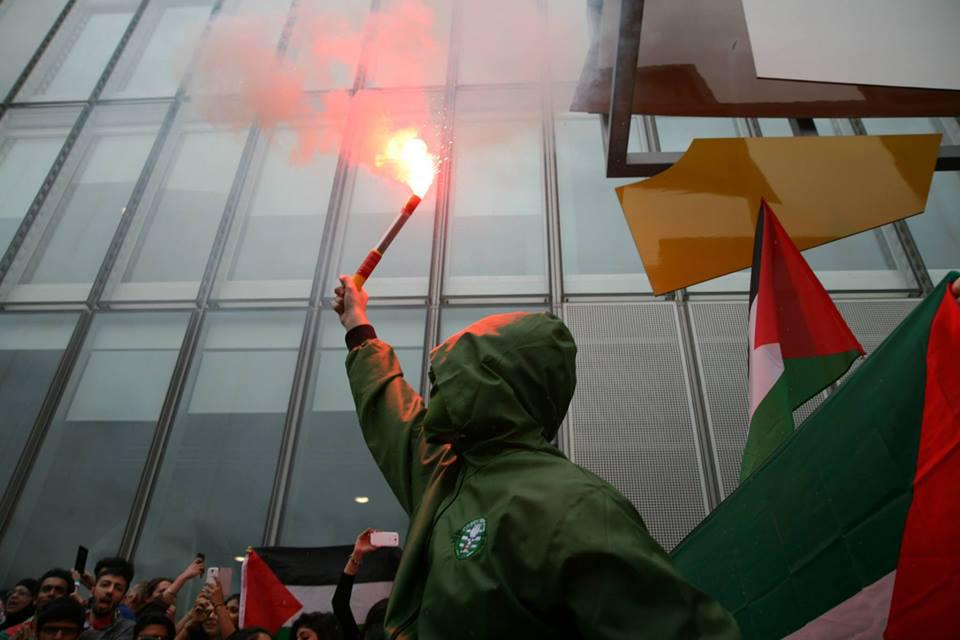
The following is an abridged summary of a qualitative study undertaken as part of the Masters in Community Education, Equality and Social Activism at the National University of Ireland Maynooth. The thesis drew upon theories of culture, subculture, social movements, radical pedagogy, ethnographies and studies of ultras, gender and football research, as well as studies of the Irish immigrant experience in Scotland, and specifically the role of Celtic FC as an expression of Irish identity.
The Green Brigade of Glasgow Celtic Football Club were founded in 2006 as an explicitly anti-sectarian, anti-racist and anti-fascist group of ultras, who would celebrate Irish Republicanism, oppose the commercialisation of football, and act as an alternative to apolitical fans groups who were perceived as being too close to the management of the club.
Creating the Commons: on the meaning of Bolivia’s water wars
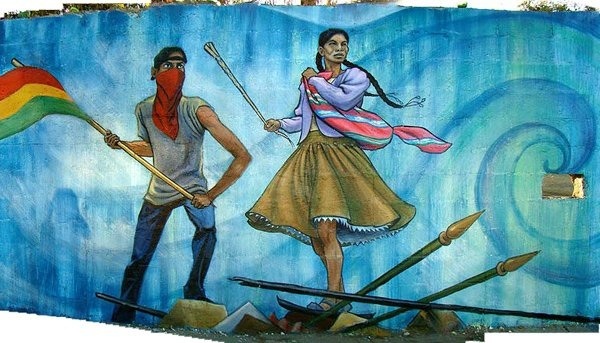
‘In the history of humankind every act of destruction meets its response, sooner or later, in an act of creation’ - Eduardo Galeano
In Bolivia, there have been remarkable experiences in urban peripheries, notably in Cochabamba, that reveal the capacity of grassroots associations to construct a free society based on solidarity and mutual aid. The background to the country’s Water War of April 2000 must be understood against preceding waves of struggle, particularly the huge marches for sovereignty and livelihoods of coca growers, Amazonian groups, and others that emerged with the implementation of the neoliberal model in 1985 [1]. Subsequent mine closures and rural migration occasioned huge increases in Bolivia’s urban centres, particularly in Cochabamba, the country’s third largest city. The state water company, Semapa, served only half of the city’s population. In the neglected southern peripheries, neighbourhood groups organised associations to bring water to their homes. Cooperatives, formed without state assistance, dug wells, built water mains, and even created drainage and sewers. In cases where wells could not be dug, the committees bought their own water tankers and organised daily deliveries. By 1990, some 140 urban water committees had formed in the south of Cochabamba, with between 300 and 1000 families in each one [1].
Rojava - Revolution Between a Rock and a Hard Place
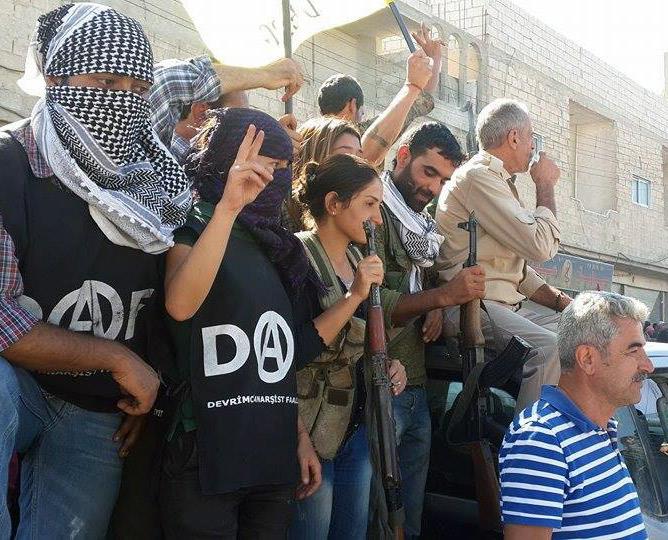 Revolutions are seldom made in favourable circumstances. Russia 1917 emerged from the mass slaughter of WWI and the disintegration of an economy under the pressure of the supply demands of that war. Spain 1936 emerged from a well planned and executed fascist coup amongst a powerful military backed and armed by international fascism. Schemas for revolution that depend on quiet times and plenty may well be doomed from the start.
Revolutions are seldom made in favourable circumstances. Russia 1917 emerged from the mass slaughter of WWI and the disintegration of an economy under the pressure of the supply demands of that war. Spain 1936 emerged from a well planned and executed fascist coup amongst a powerful military backed and armed by international fascism. Schemas for revolution that depend on quiet times and plenty may well be doomed from the start.
That said it’s hard to imagine more impossible conditions for revolution than that of Rojava. A brutal civil war, 3 small areas of territory that were kept in a state of low development by the previous regime and are not even linked to each other. A fanatic army of barbaric religious extremists armed with captured looted US heavy weaponry attacking from one side, a hostile state quietly backing that army and closing its borders to the good guys on another and waiting in the wings the old regime and its long history of brutal counter insurgency. And above all this the tactical and strategic intervention of an imperialist power whose manipulations have devastated the land to the South East over a period of almost three decades.
All the Evil in the World – Pandora, the One Percent and the New European Reaction
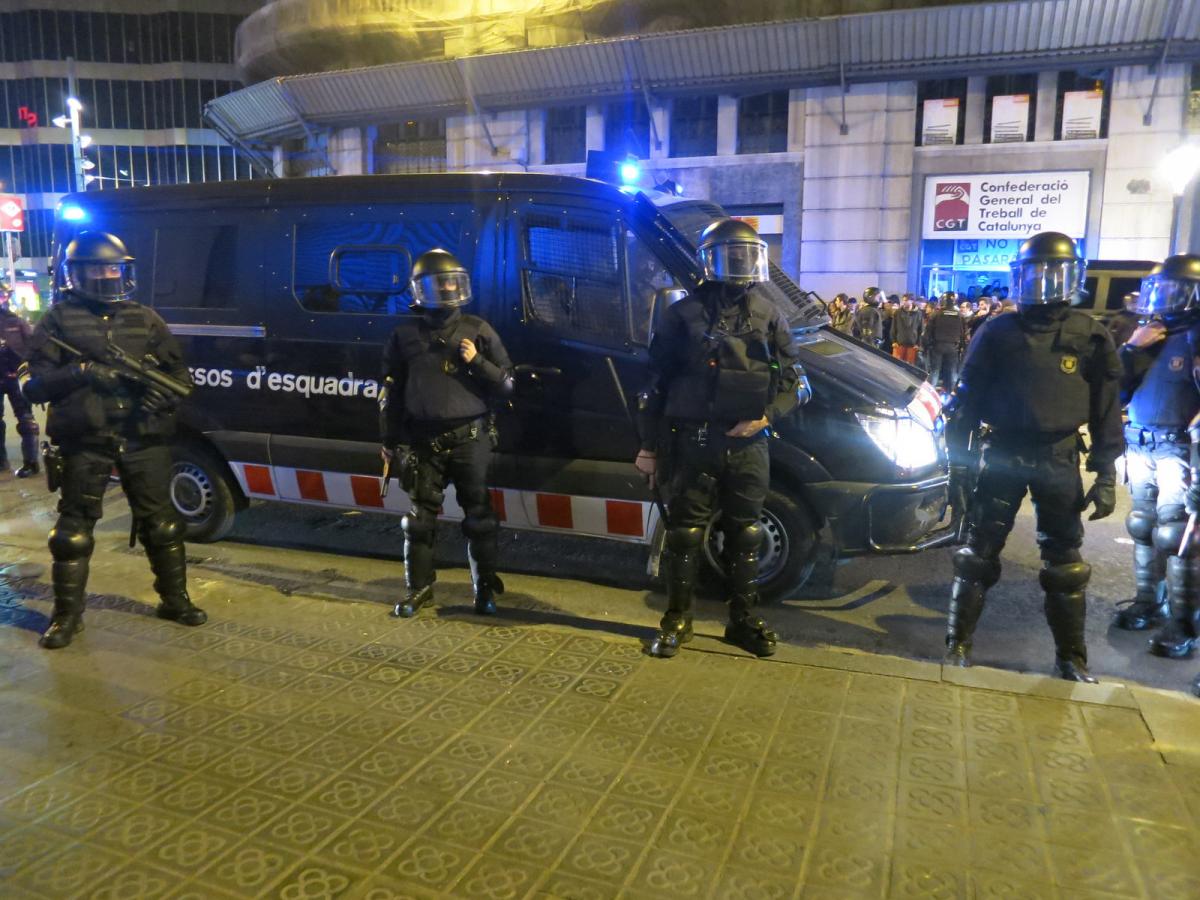 A spectre is haunting the people of Europe, but this time it's not one to be welcomed. All the powers of new Europe have entered into an unholy alliance to raise this spectre: Merkel and Rajoy, Hollande and Cameron, Irish Blueshirts and Greek state police. Where is the movement in opposition that has not been decried as terroristic by its opponents in power? Where is the opposition that has not cried out for law and order in the face of the more progressive parties? Two questions result from these facts:
A spectre is haunting the people of Europe, but this time it's not one to be welcomed. All the powers of new Europe have entered into an unholy alliance to raise this spectre: Merkel and Rajoy, Hollande and Cameron, Irish Blueshirts and Greek state police. Where is the movement in opposition that has not been decried as terroristic by its opponents in power? Where is the opposition that has not cried out for law and order in the face of the more progressive parties? Two questions result from these facts:
-
What class, classes or section of the population is conjuring up this phantasm? IE, what classes benefit from authoritarian extremism?
-
What is to be done? IE, What course of action should the people of Europe take to counter this threat? And what role do the libertarian left have to play in bringing that course of action to fruition?
To answer these questions, it is essential to examine the current wave of reaction across the European continent and asses its purpose and its source.
Direct Action: A Basic Introduction - Video & Text
An introductory video on what direct action is and isn't, providing illustrations from the campaign against the water charges.
Direct action is at the heart of the struggle against the water charges, from preventing meters being installed, to Meter Fairies removing them, to boycotting registration and the water bills in April. But what is direct action, and what is it not?
ACAB: All Cops Are ... Bounded
This photo was taken at Thursday evening's demonstration against the criminalisation of protest - in particular the arrest of almost 20 people for participating in a 2 hour blockade of the Tánaiste 3 months previously. It shows protesters holding signs saying 'ACAB' – but what does this mean? It means 'All Cops Are Bastards'. We can hear some people objecting already: 'not all Gardaí are bad'. But please hold on, that's missing the point entirely. ACAB doesn't mean that each police officer as an individual person is nasty, sadistic, dishonest, and so on. It means that every police officer is bounded by their job as an agent of the state, and this necessarily causes cops to act like 'bastards' - whether or not they want to.
On visiting the Zapatista community of Oventic
Last November, I took part in a week-long language school at Oventic, Chiapas.[1] I spent the week living and learning with two US-based comrades – Laila, a tattoo artist and socialist/feminist from Memphis, and Michael, a housing rights activist from Baltimore – alongside the wider Zapatista community of Oventic. Our ‘guides’ for the week were our neighbours – Natalio and Paloma as well as Stephanie (who was learning to be a teacher) and Efrain (a linguist, philosopher and educator all rolled in to one). These were the people we met and spoke with every day. What follows are some reflections recorded along the way.


